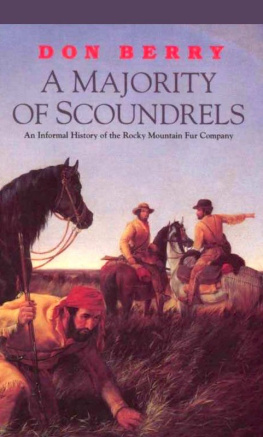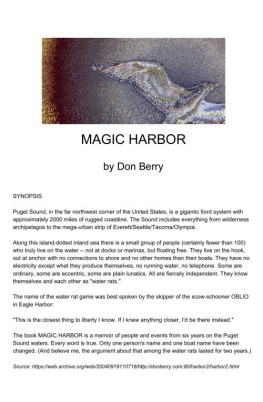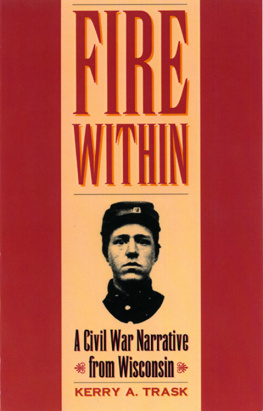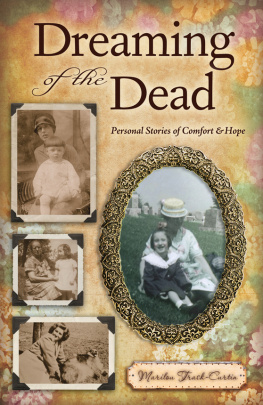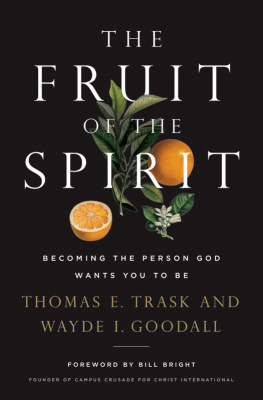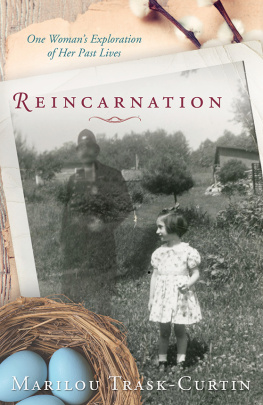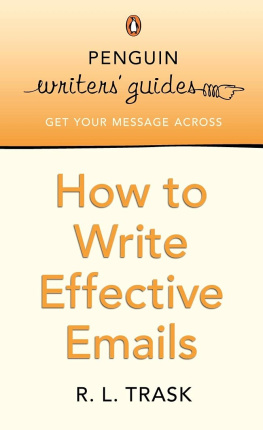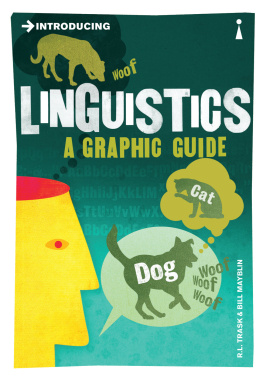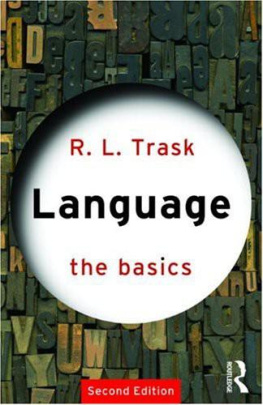Don Berry - Trask
Here you can read online Don Berry - Trask full text of the book (entire story) in english for free. Download pdf and epub, get meaning, cover and reviews about this ebook. year: 1960, publisher: Oregon State University Press, genre: Detective and thriller. Description of the work, (preface) as well as reviews are available. Best literature library LitArk.com created for fans of good reading and offers a wide selection of genres:
Romance novel
Science fiction
Adventure
Detective
Science
History
Home and family
Prose
Art
Politics
Computer
Non-fiction
Religion
Business
Children
Humor
Choose a favorite category and find really read worthwhile books. Enjoy immersion in the world of imagination, feel the emotions of the characters or learn something new for yourself, make an fascinating discovery.

- Book:Trask
- Author:
- Publisher:Oregon State University Press
- Genre:
- Year:1960
- Rating:3 / 5
- Favourites:Add to favourites
- Your mark:
- 60
- 1
- 2
- 3
- 4
- 5
Trask: summary, description and annotation
We offer to read an annotation, description, summary or preface (depends on what the author of the book "Trask" wrote himself). If you haven't found the necessary information about the book — write in the comments, we will try to find it.
Trask — read online for free the complete book (whole text) full work
Below is the text of the book, divided by pages. System saving the place of the last page read, allows you to conveniently read the book "Trask" online for free, without having to search again every time where you left off. Put a bookmark, and you can go to the page where you finished reading at any time.
Font size:
Interval:
Bookmark:
Trask
Don Berry
1960
For Pappy
afterthe long journey finding what pleased him
behinda ring of mountains
Oregon
April 29 [1848]
This dayStormy again and does not look like it will ever Stop, Mud almost tothe Knees now .... I hear today from a Clackamas Indian thereis some "Dam Fool" of a white man has got himself intotrouble with the Killamooks down at the coast, which have a pretyhard reputation. And who shd it turn out to be but my old ComradeElbridge Trask that I free-trapped with out of Fort Hall. Well I amnot surprised any but hope he does not get himself killd which wd bejust like him. He was the most restless man I ever knew ....
From the later journals of Osbourne Russell,1845-1857
Chapter One
It had been fair. The sky all day was endlessly wide,and so pale it was without color; a veil of almost-blue stretchedtaut between the earth and sun. Toward evening the first cloudsappeared at sea, rising tentatively above the edge of the world asthough appraising the land ahead. Soon the soft mass stretched acrossthe line of sea and sky as far as a man could see in eitherdirection.
The pale gold sun slipped down behind the clouds,silhouetting the tumbled forms against a sudden hot sky, pink andorange with angry red streamers. The edges of the great bank glowedfor minutes, then slowly dimmed until all that remained were thegiant shadows black and distinct on the sea, and moving toward theland.
Storm, thought Elbridge Trask, and the growingtension in the air pleased him.
He squatted on his heels on the first ridge of dunesand watched until the world at sea turned to shades of gray andblack, broken only by the gentle white rollers coming up the longbeach slope. Then he stood, stretching his arms wide against the sky,enjoying in the center of him this ending of the day. His body made along angular shape as he yawned against the vastness of sea and skyand cloud.
He turned his back to the ocean and half slid, halfwalked down the inland slope of the ridge. As he descended into thefirst depression behind the dunes the steady rumble of the surfbecame a higher-pitched whisper, the deep tones smothered by thebulwark of land.
In the dusk the weather-stained skin of his face andhands was almost black; only slightly lighter than the jet darknessof his curly, close-trimmed beard. His eyes had a startling clarityin the half-darkness of his face, clear whites and pupils the gray ofthe sea in a storm.
He walked with long, quick strides across the valleytoward the next dune ridge, half an hour away. His head movedslightly from side to side as he walked, with the habitualwatchfulness of a mountain man; a constant alertness of which he wasnot even aware, and which five years as a stable settler had notdulled.
It was dark when he reached home, and the warm lightfrom lamps inside threw yellow shafts out into the night; which thenight swallowed without disturbance. The moon was behind the easternrange of mountains now, not yet visible but lighting the sky behindthe twisted peaks with a faint glow like the ocean's phosphorescence.It would be full tonight, thought Trask, and that ought to be worthseeing. If the storm at sea didn't come in too fast.
In some vague, internal way, two parts of him debatedwhich would reach the center of the sky first, the great full moon orthe storm. He had reached the point of betting with himself on it,when he laughed suddenly; at himself, and at all the foolishdialogues men have had with themselves since time began. He was stillchuckling when he pushed open the cedar-plank door to his cabin.
Hannah was there, at the small loom, patientlyweaving the yarn she had spun in the afternoon; trying almosthopelessly to satisfy the endless clothing-appetite of a husband whodidn't have the good sense to stay out of the brush. She looked upwhen Trask came in, and smiled. The flickering light from the firesoftened her face, smoothing the harsh sharpness of her chin and highcheekbones, casting an aura of softness around the straight severityof her pulled-back hair.
"What are you so happy about, Bridge?" sheasked.
"Arguin' with myself out there," Trasksaid, tolerantly amused at his own foolishness. "Which getsfirst to the top of the sky; moon or storm."
"Storm coming in?"
" Yes, it comes," Trask said. "Raintonight."
He folded his long body into a chair before the fireand watched the flames in silence. Hannah went back to her weaving,and the only sound in the cabin was the soft susurration of theshuttle and the crackling of the fire. After a while he took a pouchof tobacco from the mantel and filled his pipe. He contemplated itwith pleasure before lighting it, because it was the singlepossession he was proud of. A Norwegian pipe, a meerschaum long sincestained rich red-brown. It gave him pleasure to think of thedifferent lands his pipe had seen before it came to his hands fromthe ill-tempered captain who owned it. Norway, where it was made, andEngland certainly, and all the coastal countries of South America,going around the Horn. And the last stop before Trask himself hadgotten it had been Oahu, in the Sandwich Islands.
Many countries, many peoples all speaking differentlanguages, many ports, and rivers and mountains of a different shape... There were things to see in the world, he thought, if a mancould but get to them. The sailors manning the trading ships got tothem, but it wasn't right somehow. Trask had tried that when theworld first opened up for him; had gone to sea for two years from hisbirthplace in New England. But it wasn't right.
You dropped your anchor andbarring badweatherwere gone again in weeks. You never got to know anythingbeyond the trading ports, and only the surface of them. It was notenough to satisfy a man in his belly.
Trask sighed, and picked a coal from the fire withtongs; lit the pipe; and soon the cabin smelled of the harshfragrance of his tobacco. The only way you could know was to live ina land, and walk it, and plant it and harvest it and see it in stormand calm until you got the rhythm of it into your belly. And then youlooked up and there were another five years gone: where? But it wasbetter, he thought, than not knowing.
He stood and went to the door and stepped out. Themoon had risen above the mountains and lost the reddish cast thatmade it seem the mirror image of the setting sun. It was rising highand fast, as if intentionally to beat the storm to the sky's peak.
"I believe the moon's going to win," Trasksaid, watching.
Hannah smiled at her loom. "You're as bad asWakila and his all the time mammook itlokum ."Wakila was the Clatsop youth who occasionally cut Trask's firewood.He used every earned cent gambling on the itlokum game, and usuallylost; but cheerfully.
Trask laughed at the comparison. "No," hesaid thoughtfully after a moment. "Itlokum is gambling with men;this is gambling with gods."
" Well," Hannah said dryly, "best toget good odds, in that case."
Trask looked around sharply, but Hannah's face wasturned away and he could not see her expression. She went aboutweaving impassively.
"All right," he said, "poke fun. Mancan't even get a little poetic with some cultusklootchman have to bring him down."
He stepped outside the door. Even as the moonapproached its zenith, the storm began to make itself felt in theair. The soft wind from the ocean brought an almost invisible mistand the smell of salt. The grasses of the Plains flattened themselvesand pointed toward the mountains in the east, silver in the light ofthe moon. They whispered softly among themselves, and near the beachtheir trailing tips drew tiny tracks on the sand, like the marks of aforgotten language.
Soon there came from the ocean side the outriders ofthe storm; lean gray shapes spearing inland silently through the sky.
There was a restless tautness in Trask's chest as hewatched them come like the spare hunting dogs of the storm, smellingout the land ahead. A wedge of mist sliced across the moon and turnedblack in silhouette. Suddenly the moon seemed smaller. Gradually, asmore of the low-sliding shapes attacked, her light grew dim. Thesurf, always heard faintly over the seaward ridge, seemed quieternow, waiting.
Next pageFont size:
Interval:
Bookmark:
Similar books «Trask»
Look at similar books to Trask. We have selected literature similar in name and meaning in the hope of providing readers with more options to find new, interesting, not yet read works.
Discussion, reviews of the book Trask and just readers' own opinions. Leave your comments, write what you think about the work, its meaning or the main characters. Specify what exactly you liked and what you didn't like, and why you think so.

